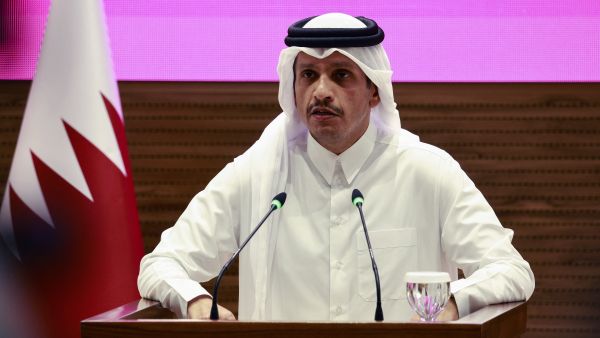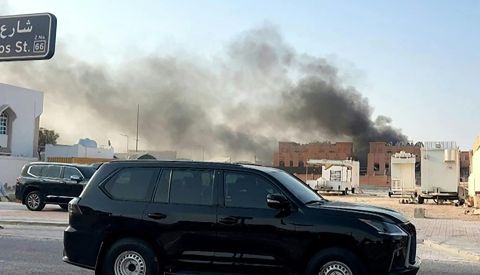ALBAWABA - The Israeli media is still covering the attack on the Hamas negotiation delegation in Doha, Qatar, and what happened after it. There is still a lot of uncertainty about what will happen to the leaders who were the target of the assassination attempt.
Israeli experts looked at when the attack happened and how much it will cost Israel for being careless.
Ohad Hemo, Channel 12's Arab Affairs correspondent, asked why Israel was so quiet after the assassination attempt failed, even though the Hamas leaders who were targeted were not killed.
Israel attacked Qatar on Tuesday afternoon, going after several Hamas leaders who were talking about a U.S. plan to end Israel's nearly two-year war on Gaza. Five Palestinians and one Qatari internal security officer died in the attack.
A security official told Channel 14 that the strike only hit one floor in a focused way and only got some of the results. They went on to say:
"If we had blown up the whole building, it would have been very unlikely that Hamas leaders would have survived."
Meanwhile, Israeli channel i24 said that a preliminary investigation has begun into the possibility that the fate of Hamas leaders is still unknown.
Israeli news also talked about how high-ranking military and security officials, like the heads of the Mossad and the National Security Council, were against killing Hamas leaders right now because it would hurt a possible deal to exchange prisoners.
Before the Qatar strike, Mossad chief David Barnea strongly opposed the plan, calling it a mistake, and stressed that it was the Qataris who had made progress in negotiations toward a deal.
Channel 12 also quoted Nitzan Alon, the army official in charge of the prisoners and missing persons file, as saying he didn't know how the attack would change Hamas's approach to negotiations or whether it would change its demands.
Tamir Hayman, head of the Institute for National Security Studies at Tel Aviv University, said that if the Qatar strike fails, either fully or partially, Israel will be in a very bad situation, paying the political costs without getting a military gain against Hamas.
Hayman says that these costs will be "very heavy," and since there was no guarantee of a reward for a successful operation, Israel is now in a new bind.
Doha has always said that Hamas's political leaders are in Qatar with the help of the US, and that Qatar's mediation, along with Egypt's, has helped free dozens of Israeli prisoners. Israel's military campaign in Gaza, on the other hand, has not freed a single prisoner.










